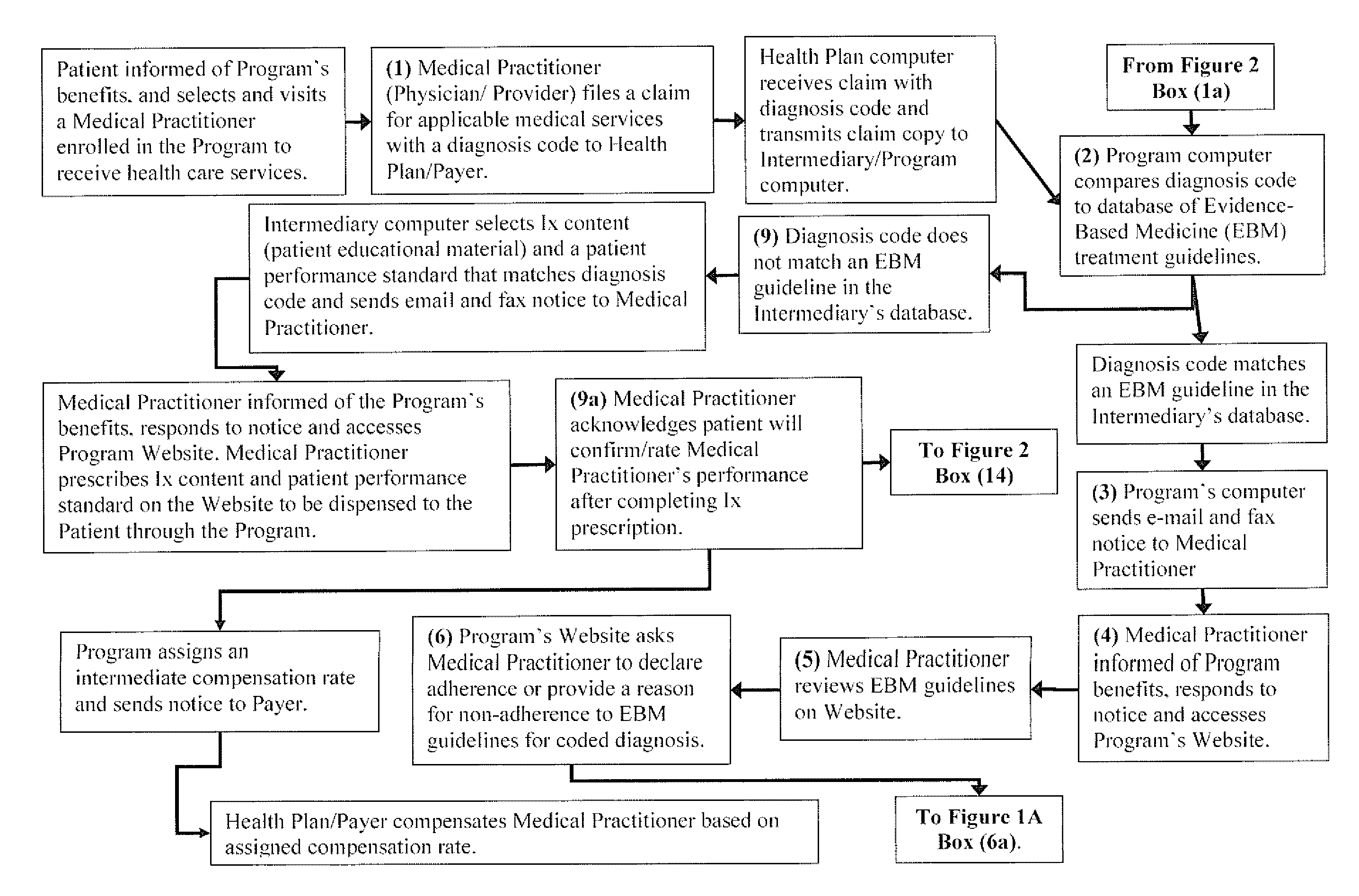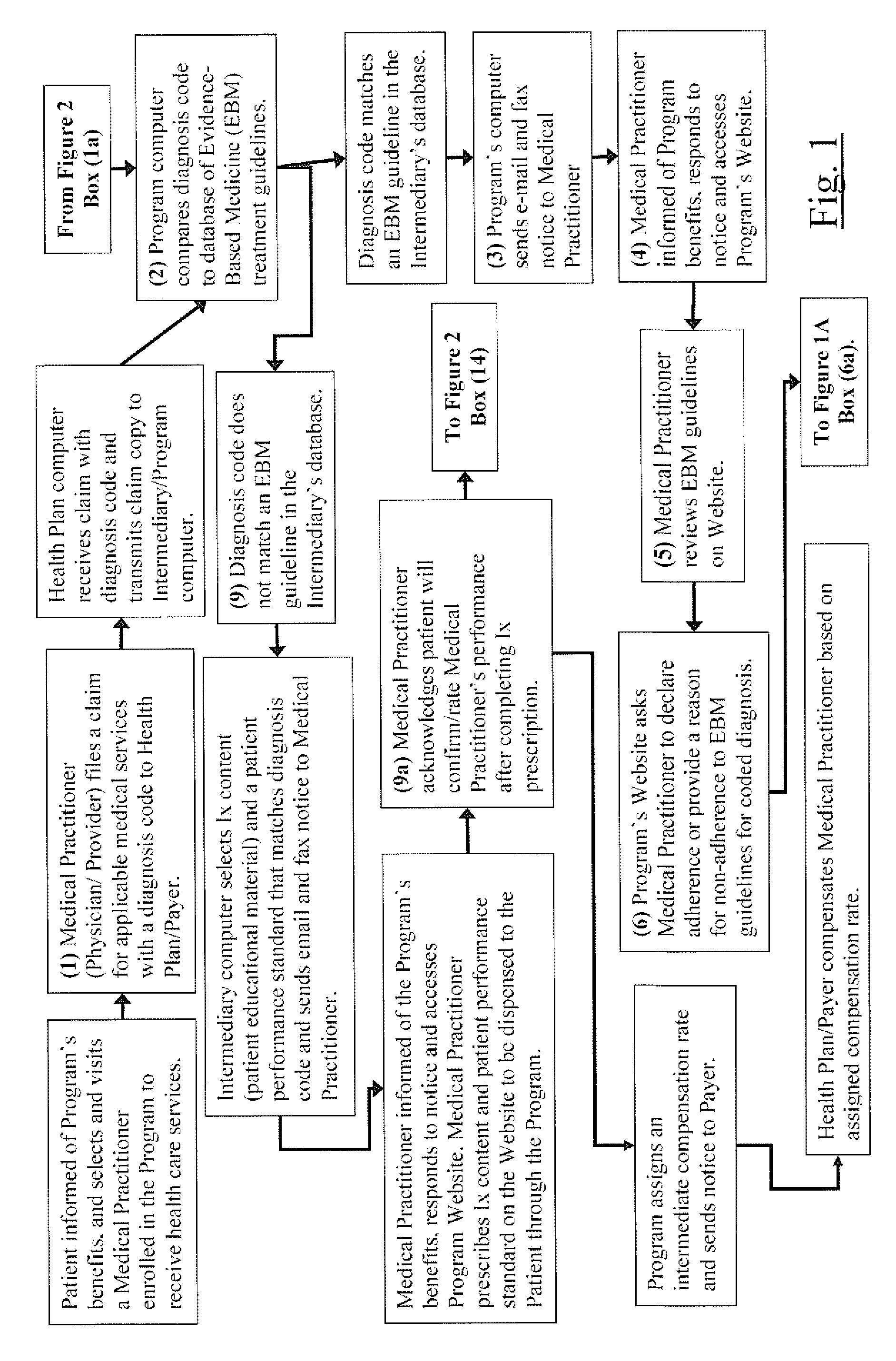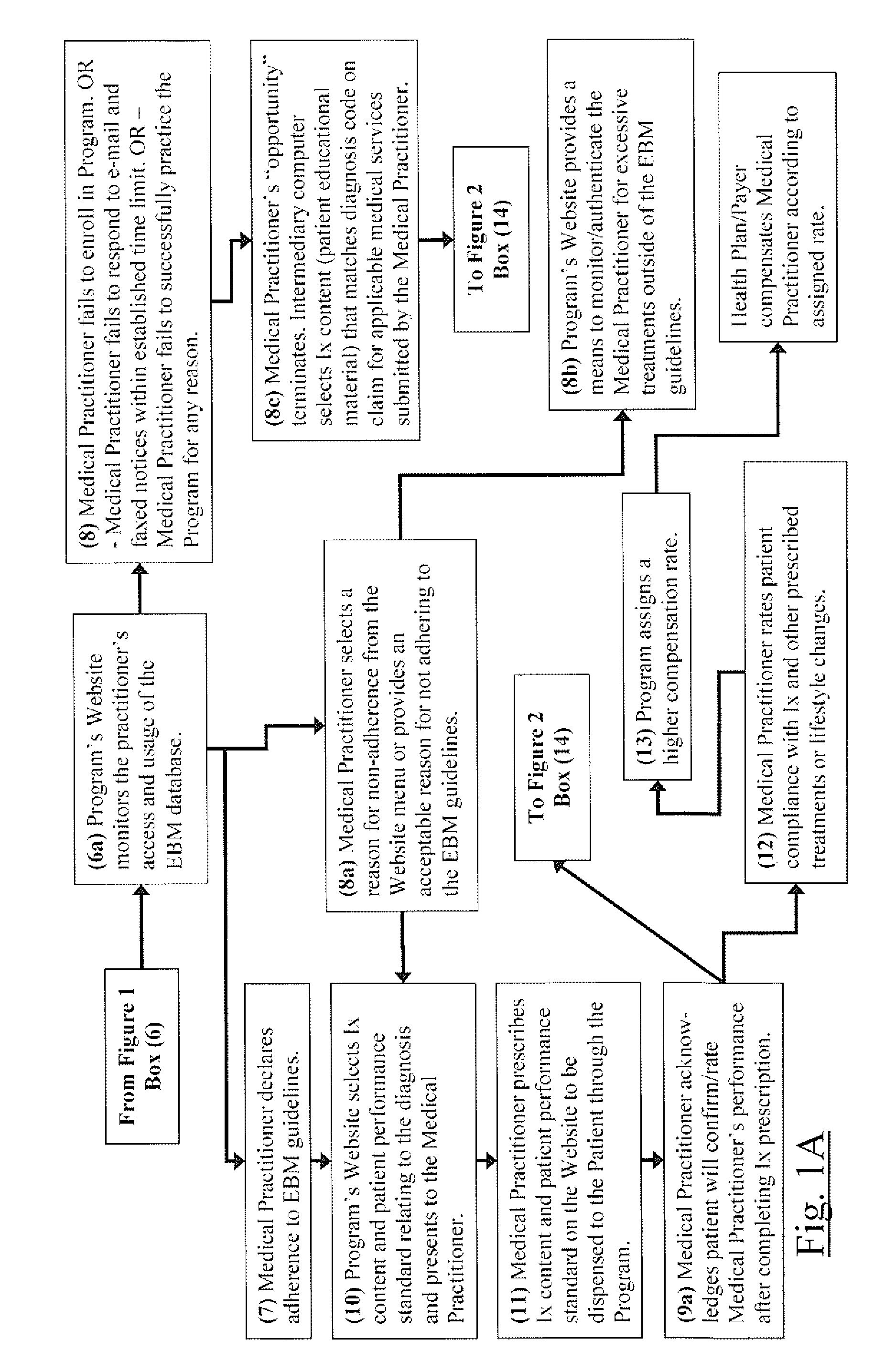Methods for improving the clinical outcome of patient care and for reducing overall health care costs
a technology for improving the clinical outcome of patient care and reducing the overall cost of health care, applied in the field of methods, can solve the problems of serious maladies, the shortage of u.s. physicians to treat these diseases, and the increase in the number of americans without health insurance coverage or under-insured, so as to improve the delivery of healthcare services, promote healthy behavior, and promote healthy behavior
- Summary
- Abstract
- Description
- Claims
- Application Information
AI Technical Summary
Benefits of technology
Problems solved by technology
Method used
Image
Examples
Embodiment Construction
[0051]The current invention is often referred to as a healthcare “pay-for-performance” or “P4P” program. Most P4P programs exclusively reward or motivate medical providers (doctors and hospitals). The current invention rewards both the medical provider and the patient “interactively” in a manner that creates a simultaneous benefit to the service provider, the patient, and the purchaser / payer (health plan). The current invention may preferably be described as an “alignment of interest” or “AOI” program because it aligns the interest of the medical provider, the patient and the health plan sponsor in a “win-win-win arrangement.
[0052]The current invention typically involves four (4) parties: the medical service provider or practitioner (doctors); the patient (consumer or health plan member); the party who underwrites the cost or risk of the healthcare (purchaser or payer or employer or insurer or government or health plan or health plan sponsor); and the independent operator of the inv...
PUM
 Login to View More
Login to View More Abstract
Description
Claims
Application Information
 Login to View More
Login to View More - R&D
- Intellectual Property
- Life Sciences
- Materials
- Tech Scout
- Unparalleled Data Quality
- Higher Quality Content
- 60% Fewer Hallucinations
Browse by: Latest US Patents, China's latest patents, Technical Efficacy Thesaurus, Application Domain, Technology Topic, Popular Technical Reports.
© 2025 PatSnap. All rights reserved.Legal|Privacy policy|Modern Slavery Act Transparency Statement|Sitemap|About US| Contact US: help@patsnap.com



